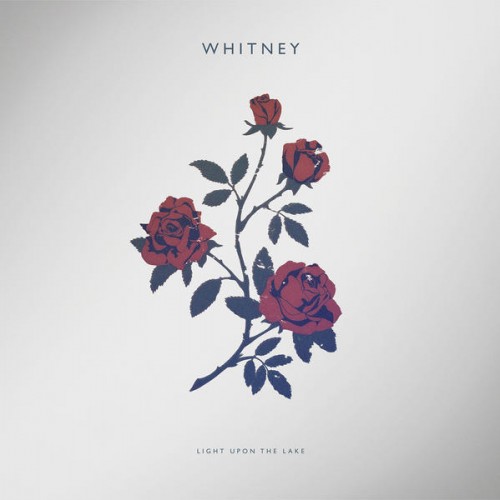Heartbroken following the slow disbandment of their previous group, glam-pop quartet The Smith Westerns, Max Kakacek and Julien Ehrlich found themselves plodding away in uninspiring, mundane jobs in their hometown of Chicago, the flame of their brief musical careers quashed by the harsh Illinois winter. They were alone, isolated, and irrepressibly sad. Fast forward two years, and the pair have turned their grief into Light Upon The Lake, their debut record as melancholy indie seven-piece Whitney.
Indeed, the engine of Light Upon The Lake is powered by an inherent, enveloping sadness. Written as a kind of break-up album, they’re striving for some form of closure. Opener ‘No Woman’ is a cold mix of Ehrlich’s shrill but beautiful falsetto voice and a hanging flux of soft brass. Sounding completely isolated — despite fronting a seven-piece rock band — Ehrlich’s vocals add to the personal complexities with which the album attempts to explore. Wrangled together with crisp guitars and breathy drums, the record starts in the same vein as a Jose Gonzalez and Gold Celeste album, conjuring up subtly psychedelic rock tones with a nuance of 1970s folk-rock.
“Evocative and gorgeously composed, the record is lush and packed with perplexing tales that fondly flirt with a number of stylistic influences”
Likewise, ‘Golden Days’ is a fuzzy blend of soulful melodies, mellow licks and incumbent horn sections. ‘Golden Days’ in particular fetches a sound that is both positive and downbeat, trailing off softly into an anxious but beautiful choral finish of “nah nah nahs”. The track is lush, cathartic, and, above all else, believable: a trait often lost in the mix of guitar-fueled angst by most indie-pop bands. The video for the track projects flicks of the band performing on a grainy, sepia image, enriching the old-school feel and nostalgic imprint left by the track. Looking back on their past, the band are tasked with moving on while retaining fond memories of their previous band.
As the album progresses, the light at the end of Whitney’s troubled tunnel seems to grow thicker, as it rumbles gently into the lofty ‘Dave’s Song’. Spread out like a cross between Motown soul and George Harrison, the wistful nostalgia of Ehrlich’s pre-Whitney blues creeps back into his lyrics (“I know it’s hard to give up when you don’t want to be saved / take me in your heart again / and I know how to keep you hung up but I won’t do it again / don’t you go and leave me here my friend”). With its beautiful honesty, emotional serenity and nostalgic overtones, Light Upon The Lake is reminiscent of The War On Drugs Lost In A Dream, another one of Secretly Canadian’s stalwart releases.
Towards the later stages of the record, the moody atmospheres give way to twangy guitar solos and bandstand-style rock ’n’ roll on tracks like ‘On My Own’ and ‘Polly’. Bulging with sentiment, the lyrics stay true to the nostalgic overtones. Regretfully rueing a missed romantic opportunity, Ehrlich croons “If only we were young / you’d make me feel warm”. Seamlessly bleeding into ‘Follow’, the album transcends into a joyous choir of bubble-gum pop and folk-rock, before tailing off into a windy crescendo.
Every bit as majestic and serene as its title implies, Light Upon The Lake is an intimately emotional experience to listen to. Evocative and gorgeously composed, the record is lush and packed with perplexing tales that fondly flirt with a number of stylistic influences. Palpable, relatable, and gorgeously written, the album offers a template in which to feed your own experiences. All things considered, Light Upon The Lake is a delightfully intoxicating and thoroughly enjoyable pop record that sounds off the beginning of a fruitful and unexpected new chapter for Max Kakacek and Julien Ehrlich. The Smith Westerns have finally been given a proper burial. Long live Whitney.
‘Golden Days’
‘No Woman’

